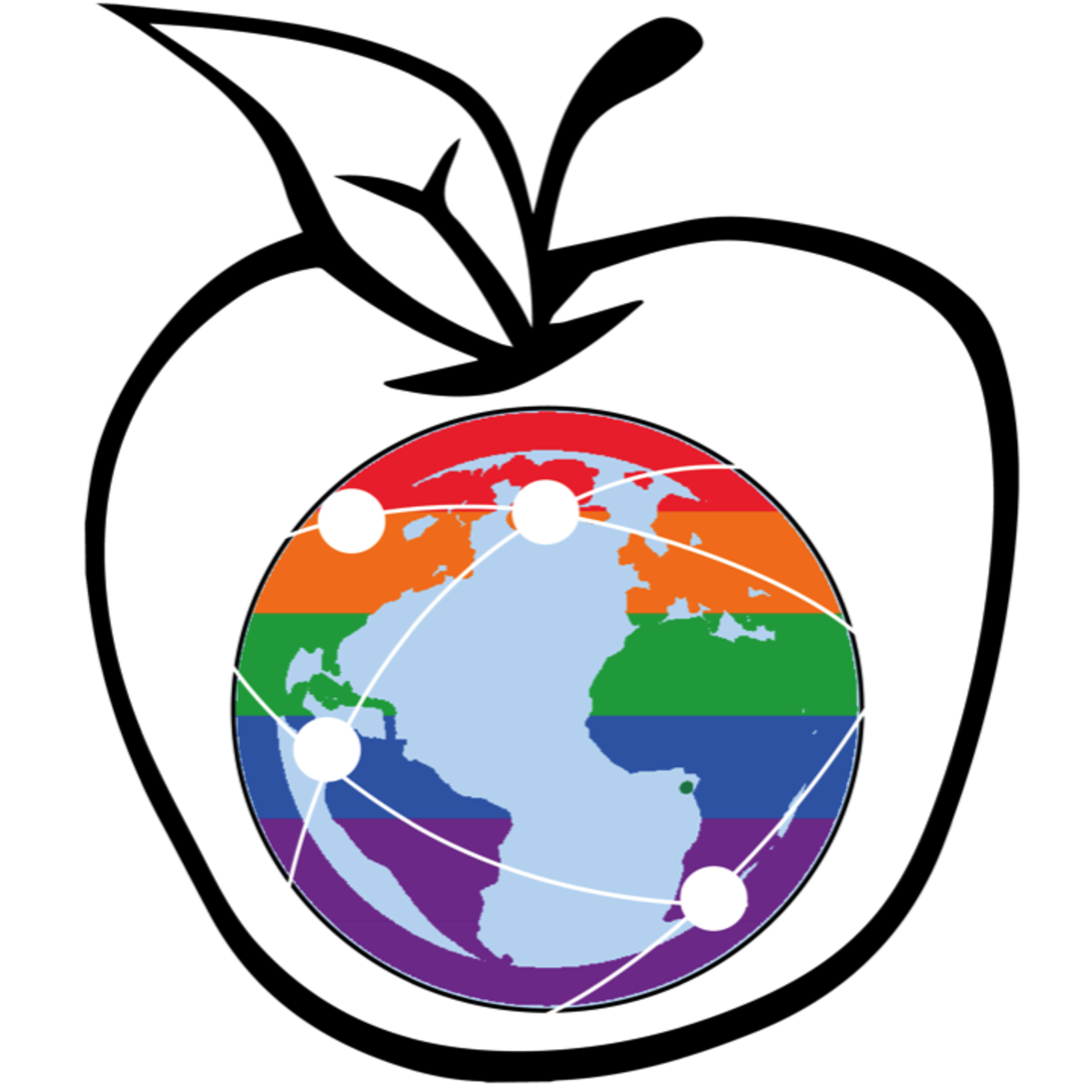
In this project-based course you’ll review the Advanced Placement Computer Science Principles course and exam description guide to prepare for the “Explore Task”, where students must research a recent computing innovation and and analyze its impacts on the world. You’ll also review the description of this task from the student perspective and complete the task yourself. Then you’ll assess sample secondary student work by following the APCSP scoring guidelines as well as provide feedback to a fellow learner on their submitted task and receive the same from fellow learners.
Read more
In this project-based course you’ll review the Advanced Placement Computer Science Principles course and exam description guide to prepare for the “Explore Task”, where students must research a recent computing innovation and and analyze its impacts on the world. You’ll also review the description of this task from the student perspective and complete the task yourself. Then you’ll assess sample secondary student work by following the APCSP scoring guidelines as well as provide feedback to a fellow learner on their submitted task and receive the same from fellow learners.
In this project-based course you’ll review the Advanced Placement Computer Science Principles course and exam description guide to prepare for the “Explore Task”, where students must research a recent computing innovation and and analyze its impacts on the world. You’ll also review the description of this task from the student perspective and complete the task yourself. Then you’ll assess sample secondary student work by following the APCSP scoring guidelines as well as provide feedback to a fellow learner on their submitted task and receive the same from fellow learners.
This course is part of a larger Specialization, in which the first five courses focus on teaching impacts of computing concepts and the technology and computing concepts that make them possible, preparing you to teach pre-college learners to be both savvy and effective participants in their digital worlds. While this course and project can be completed without taking the other courses, the bulk of new knowledge is taught there. Additionally, throughout the courses you’ll reflect on your learning experience from both the perspective of the student and the educator, helping you become a more reflective teacher and develop an understanding of how instruction and activities can be designed to support learning.
Note, if your goal is to receive graduate credit from the University of California, San Diego, you need to to make that decision before you complete this course. Please see the FAQ “Will I earn university credit for completing this course?” for details on how to receive that credit.
In terms of CSTA K-12 computer science standards, throughout the Specialization we primarily cover learning objectives within the “impacts of computing” concept, while also including some within the “networks and the Internet” concepts and the “data and analysis” concept. Practices we cover include “fostering and inclusive computing culture”, “recognizing and defining computational problems”, and “communicating about computing”.
What's inside
Syllabus
Exploring the Impacts of Computing
Welcome to the capstone project! Are you ready to put your learning to the test? We'll learn about why you should care about the Advanced Placement Computer Science Principles course and review teacher guidance for the Explore Task students are asked to do to evaluate impacts of computing on our society, economy and culture.
Read more
Syllabus
Good to know
Save this course
Reviews summary
Practical project for teaching technology impacts
Activities
Review basic programming concepts
Show steps
Ensure your programming skills are up-to-date for the course and the Explore Task.
Browse courses on
Programming Fundamentals
Show steps
-
Review online tutorials or textbooks on basic programming concepts
-
Solve simple programming problems to test your understanding
Explore online tutorials on computing innovations
Show steps
Expand your knowledge and stay up-to-date with the latest computing advancements through online tutorials.
Show steps
-
Identify reputable online platforms or educators
-
Choose tutorials that align with your interests and goals
-
Follow along and complete the exercises provided
Review the latest advances in computing
Show steps
Prepare for the Explore Task by reviewing current events and advancements in the field of computing.
Show steps
-
Read articles from reputable tech news sources
-
Watch videos or attend webinars on emerging technologies
-
Review research papers or conference proceedings
Six other activities
Expand to see all activities and additional details
Show all nine activities
Develop a project proposal for evaluating the impact of a computing innovation
Show steps
Lay the groundwork for your Explore Task project by creating a detailed proposal.
Show steps
-
Identify a computing innovation and its potential impact
-
Develop a research plan and timeline
-
Outline the methodology you will use
-
Consider potential challenges and mitigation strategies
Complete practice problems on computing concepts
Show steps
Sharpen your understanding of the concepts covered in the Explore Task by solving practice problems.
Show steps
-
Access online resources or textbooks for practice problems
-
Work through practice questions and check your answers
-
Review your mistakes and identify areas for improvement
Participate in a peer review session
Show steps
Gain valuable insights and improve your work by exchanging feedback with peers.
Show steps
-
Find a peer or group to work with
-
Share your work and provide feedback to others
-
Incorporate feedback into your own work
Design and develop a computational artifact
Show steps
Showcase your technical skills and understanding by creating a functional artifact that demonstrates the impact of computing.
Show steps
-
Choose a suitable programming language and tools
-
Design and implement the artifact according to your proposal
-
Test and debug your artifact
-
Document your work and prepare for presentation
Create a visual presentation on the impact of computing
Show steps
Demonstrate your understanding of the impact of computing by creating a visually appealing presentation.
Show steps
-
Choose a specific area of computing and its impact
-
Research and gather relevant data
-
Design and create a presentation using visual aids
-
Practice your presentation and prepare for feedback
Contribute to open-source projects related to computing
Show steps
Gain practical experience and demonstrate your commitment to computing by contributing to open-source projects.
Browse courses on
Open Source
Show steps
-
Identify open-source projects that align with your skills and interests
-
Review the project documentation and codebase
-
Propose and implement changes or enhancements
Review basic programming concepts
Show steps
Ensure your programming skills are up-to-date for the course and the Explore Task.
Browse courses on
Programming Fundamentals
Show steps
- Review online tutorials or textbooks on basic programming concepts
- Solve simple programming problems to test your understanding
Explore online tutorials on computing innovations
Show steps
Expand your knowledge and stay up-to-date with the latest computing advancements through online tutorials.
Show steps
- Identify reputable online platforms or educators
- Choose tutorials that align with your interests and goals
- Follow along and complete the exercises provided
Review the latest advances in computing
Show steps
Prepare for the Explore Task by reviewing current events and advancements in the field of computing.
Show steps
- Read articles from reputable tech news sources
- Watch videos or attend webinars on emerging technologies
- Review research papers or conference proceedings
Develop a project proposal for evaluating the impact of a computing innovation
Show steps
Lay the groundwork for your Explore Task project by creating a detailed proposal.
Show steps
- Identify a computing innovation and its potential impact
- Develop a research plan and timeline
- Outline the methodology you will use
- Consider potential challenges and mitigation strategies
Complete practice problems on computing concepts
Show steps
Sharpen your understanding of the concepts covered in the Explore Task by solving practice problems.
Show steps
- Access online resources or textbooks for practice problems
- Work through practice questions and check your answers
- Review your mistakes and identify areas for improvement
Participate in a peer review session
Show steps
Gain valuable insights and improve your work by exchanging feedback with peers.
Show steps
- Find a peer or group to work with
- Share your work and provide feedback to others
- Incorporate feedback into your own work
Design and develop a computational artifact
Show steps
Showcase your technical skills and understanding by creating a functional artifact that demonstrates the impact of computing.
Show steps
- Choose a suitable programming language and tools
- Design and implement the artifact according to your proposal
- Test and debug your artifact
- Document your work and prepare for presentation
Create a visual presentation on the impact of computing
Show steps
Demonstrate your understanding of the impact of computing by creating a visually appealing presentation.
Show steps
- Choose a specific area of computing and its impact
- Research and gather relevant data
- Design and create a presentation using visual aids
- Practice your presentation and prepare for feedback
Contribute to open-source projects related to computing
Show steps
Gain practical experience and demonstrate your commitment to computing by contributing to open-source projects.
Browse courses on
Open Source
Show steps
- Identify open-source projects that align with your skills and interests
- Review the project documentation and codebase
- Propose and implement changes or enhancements
Career center
Education Technology Specialist
Computer Science Teacher
Educational Consultant
Education Policy Analyst
Education Researcher
School Counselor
School Administrator
Instructional Coordinator
Learning Specialist
High School Teacher
Middle School Teacher
Curriculum Developer
Kindergarten and Elementary School Teacher
Instructional Designer
Reading list
Share
Similar courses
OpenCourser helps millions of learners each year. People visit us to learn workspace skills, ace their exams, and nurture their curiosity.
Our extensive catalog contains over 50,000 courses and twice as many books. Browse by search, by topic, or even by career interests. We'll match you to the right resources quickly.
Find this site helpful? Tell a friend about us.
We're supported by our community of learners. When you purchase or subscribe to courses and programs or purchase books, we may earn a commission from our partners.
Your purchases help us maintain our catalog and keep our servers humming without ads.
Thank you for supporting OpenCourser.



